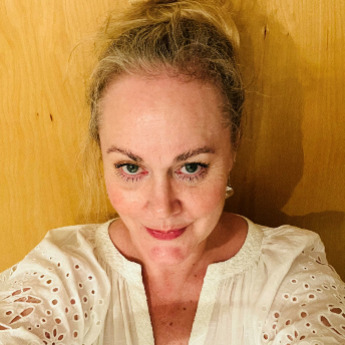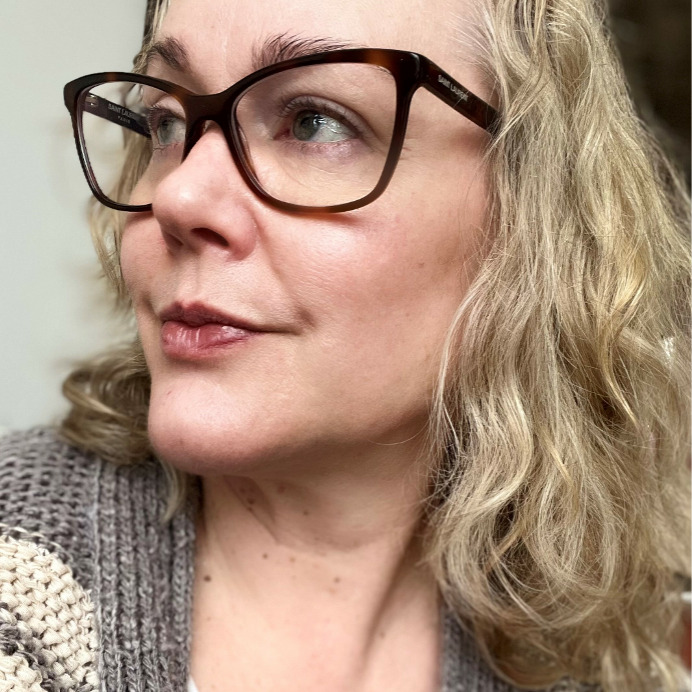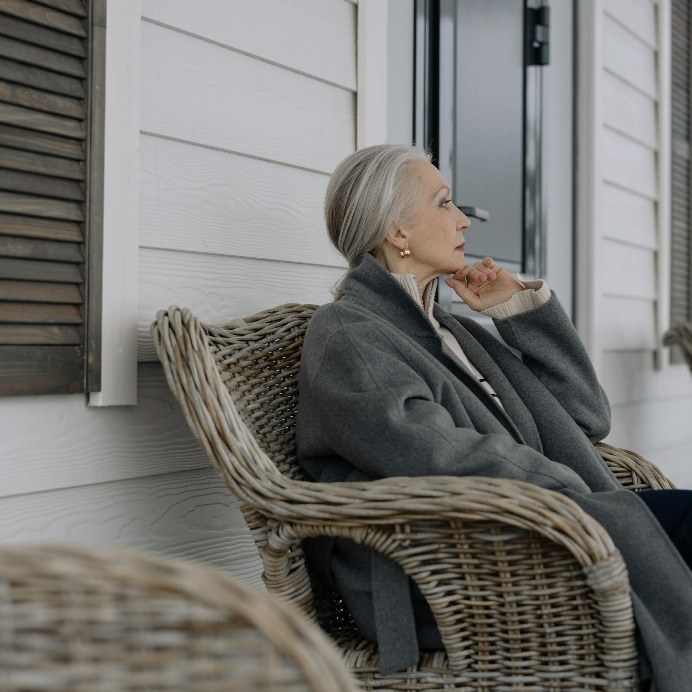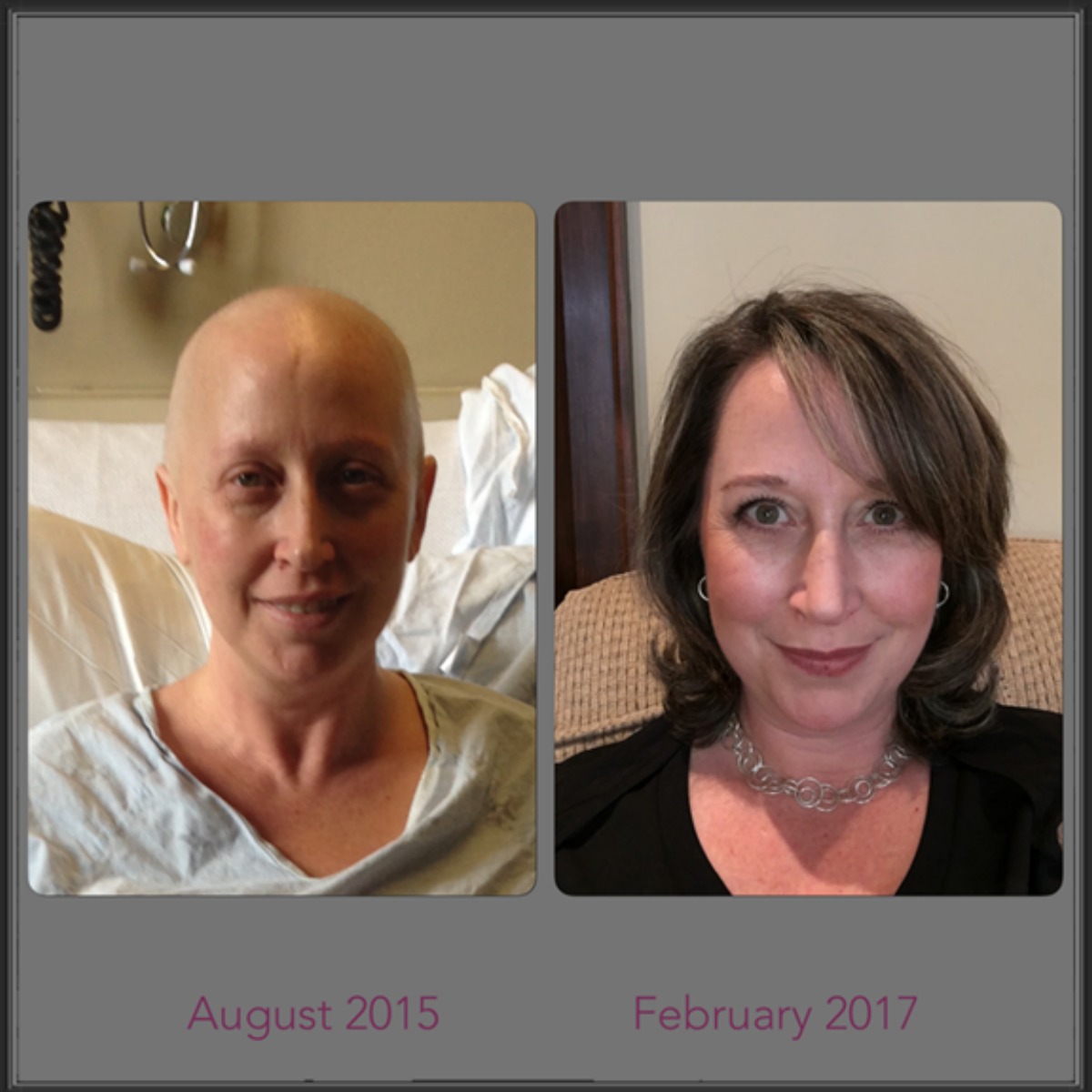By continuing to use our site, you consent to the processing of cookies, user data (location information, type and version of the OS, the type and version of the browser, the type of device and the resolution of its screen, the source of where the user came from, from which site or for what advertisement, language OS and Browser, which pages are opened and to which buttons the user presses, ip-address) for the purpose of site functioning, retargeting and statistical surveys and reviews. If you do not want your data to be processed, please leave the site.
The Voice of People With Breast Cancer
Education
Our Voices Blog
Tag : mental health
The Messy, Honest Truth About Diagnosis, Recovery and the Emotions No One Talks About
I’m an open book about breast cancer. I’ve chosen to be vocal because I want to wipe out stigma, shine light on little-talked about topics and help other women feel less alone. When I was first diagnosed with breast cancer, it didn’t cross my mind that one day I’d want to share all the details about my personal experiences with cancer by writing a monthly column, but life is weird and here I am. And I’m grateful. Especially when I receive a direct message on my Instagram from a woman I don’t know, who is dealing with her own breast cancer diagnosis and looking for support.
I Faced Cancer—Then I Faced Him. How One Man’s Bias Tried to Sink Me
Not long ago, I felt confident about my post-cancer status. Like I was finally rising above and beyond being just a breast cancer survivor. That I could actually do real-life things and shake off some of the lingering shadows. It felt good and empowering, and suddenly, I was ready to take on new challenges. So, I did, by swimming laps at the community centre pool. And boy, did I suck at it horribly.
Don’t Let the Fear of Recurrence Define You
Many people diagnosed with breast cancer experience fear of recurrence. While some level of fear is natural, excessive and persistent fear can negatively impact your quality of life. Signs that fears are interfering with your daily life and wellbeing include heightened anxiety, trouble making decisions, difficulty completing daily tasks, and a greater risk of developing post-traumatic stress disorder (PTSD) or depression. Being able to recognize the intensity and frequency of these fears is necessary to be able to manage them effectively.
Seven Ways to Respond to Family and Friends’ Reactions to Your Breast Cancer
Yet, the thought of having to say that “I have cancer” out loud to my family and close friends wasn’t something I wanted to do. It made me feel like I was looking for attention. That’s because having cancer is surreal and warps reality. It was near impossible for me to wrap my head around. Sharing this information felt deeply personal and required me to be vulnerable, strong and courageous all at the same time. No easy feat. So of course, once I confided in my circle of family and friends, I wanted them to say and do the things I needed.
What Were You Reading? Our Top 10 Blog Posts of 2024
As we look ahead to 2025, we reflect on the incredible strides made in breast cancer awareness, research, and support. The past year brought new insights, inspiring stories, and innovative developments in breast cancer research. To kick off the new year, we've curated a list of blog posts that have generated the greatest interest in our community over the past year.
Three Things I Learned That Make Me Mentally Stronger
This was not (and sometimes still isn’t) easy. I blamed and shamed my way through surgery and treatment. As a result, I held my breast cancer diagnosis close to my heart, not really talking about it or sharing about my experiences with anyone beyond my tight circle of confidants. It wasn’t until a friend pushed me to write an article about my experience with breast cancer that I started to crack open and search for a different way to go through it.
The Invisible Stage of Breast Cancer
I struggle with the word “survivor”. Maybe it’s because I still don’t really feel like a survivor, six years post diagnosis. The word “survivor” implies I’ve 'made it through.' Six years later, however, I feel like I am still in it. I feel tremendous guilt that I don’t feel like a survivor, when many before me (my mom and brother included) would have given anything to be in my privileged position of surviving. Please don't misunderstand —I am filled with gratitude and take note every single day, even when completing the most disliked tasks. I am grateful because I know that if I were sick, I would give anything to do this task again.
It’s Hard to Find Hope When You Feel Stuck… But it’s Possible
I wasn’t feeling the hope. Not this morning. My pre-breakfast state of mind was consumed by a knot in my stomach, a persistent sense of anxiety and frustration, and the crappy reality that I really and truly don’t know what I’m doing with my life or what my future holds.
Anxiety, PTSD and Depression: How to manage the emotional side of breast cancer
For me, hearing these words felt like I was falling into a deep pit that I had no way of crawling out of. My diagnosis wasn’t something I could negotiate or talk my way out of either—two things I am fairly good at. This lack of control and inability to change my situation hit me hard. I had to accept that cancer was my new reality, and this filled me with fear. The feelings that followed oscillated between depression and anxiety—and they weren’t fleeting.
Free Your Mind: Five Must-know Free Psychotherapy Resources
A breast cancer diagnosis can leave you feeling winded, like you’ve been socked in the stomach and can’t breathe, or even think for that matter. That’s how I felt. I had no emotion, no tears and no anger when I first heard the words “you have breast cancer.” My mind and body simply froze and everything around me, including my mind, went hazy. I attribute this now to shock, which, in my opinion, is a fairly reasonable reaction to receiving such life-changing news. And while the haziness eventually wore off, the surrealness of my new reality remained overwhelming.
Do You Feel Invisible?
A few years ago, a friend shared a story about the first trimester of her pregnancy. She was thrilled to be pregnant, but at the time, kept her pregnancy under wraps as she hadn’t passed the three-month safety zone. She was also sick as a dog, overwhelmed with intense nausea and fatigue, that heightened during her twice-daily, 25-minute subway commute to and from work. Despite looking green-ish, sweaty, unstable on her feet and gripping whatever pole or hand railing was available, not once in 90 days did anyone sitting on the subway offer my friend their seat. She’d felt invisible.
Questions & Experts: A Clinical Psychologist Answers Your Questions About the Mental Health Impact of a Breast Cancer Diagnosis
A breast cancer diagnosis comes with so many questions and there never seems to be enough time at appointments to have some of these questions answered. To help address this, we developed a "Q&E: Questions and Experts" series. In this series, a variety of experts spend the entire virtual session answering pre-submitted and live questions from participants. Watching the videos on-demand might be a little difficult to get through. So, we’ve created this guide to help you get right to the questions and answers that matter the most to you
When Was the Last Time You Asked Yourself: Are You Okay?
I’ve been watching Harry & Meghan, the documentary series on Netflix. I’m not a royal’s buff or even a fan, well, except for Princess Diana (I thought she was great). No, I started watching the series for boredom’s sake, because I needed a new show. I figured that because I like docu-series and because I couldn’t watch what I really wanted to—the Kardashian’s new reality show because I don’t have Disney+—this was it. So, I clicked play and about five minutes into Episode 1, I was hooked.
I Can Create My Reality
I read a lot. About everything, really, including Jackie Collins’ Hollywood Wives, which I’m about three decades late on, I know, but I just watched Lady Boss, The Jackie Collins Story on Netflix so here I am. The book is good too, in a dishy fantastical way, so naturally after 15 pages in I went back online and bought the sequel Hollywood Wives: The New Generation. But, that’s not the kind of reading I want to share. Books about the power of the mind, self-esteem, and mental health and how to create a positive reality are what I’m referring to. I like these types of books and have piles of them, because I honestly believe they work. I just wish I’d fallen back on them when I was initially diagnosed with breast cancer and going through surgery and treatment.
Podcasts for Peace of Mind
I came to the Podcast game way late, like decades late. So when most people were tuning in on their morning commute to work, I was still listening to the mumbo jumbo in my head instead. Not that there’s anything wrong with this, I’ve always enjoyed my own company and I’m also a bit of a late bloomer which can translate into sometimes being a latecomer, so there’s that. But if I knew then how much I love a good podcast now, I’m fairly confident the time I spent waiting in Princess Margaret Hospital’s air-conditioned rooms would have passed by a lot quicker.
The Mental Health Impacts of a Breast Cancer Diagnosis
Experiencing a breast cancer diagnosis is overwhelming and while the overall physical impacts of the disease are well-known, the mental health impacts are often less discussed. The shock of being diagnosed, the fear of recurrence, and the anxiety that comes with living with a breast cancer diagnosis, among other mental health effects, are not considered. As far as the public knows, breast cancer is a physical disease that lasts only as long as its treatment. However, we know that is nowhere near the truth. To highlight this, we asked community members to comment on what impact their breast cancer diagnosis and experience has ha or continues to have on their mental health.
Joycelyn's Cancer Journey
Joycelyn Merkley, from Shelburne, Ontario, describes herself as: a girlfriend, mother, grandmother, sister, and daughter. She has lived 53 years embracing these roles when in July of 2021 she was thrown into another role: breast cancer patient.
Stay Calm and Mentally Strong: Three Ways to Motivate, Inspire and Empower Yourself for Optimum Health
Tell me if any of this rings a bell…
The Beginning: Get up, find a lump, feel confused, panic inside, see the doctor, see a specialist, get a mammogram, see an oncologist, have an ultrasound, get an MRI, biopsy the lump, do it all over again and again and again, receive a breast cancer diagnosis, feel in shock, go home, make a plan, fall into bed and don’t fall asleep.
Relieving the emotional and physical toll of breast cancer through mind-body practices
Breast cancer treatment affects more than just your body. It can take an incredible toll on your emotional well-being as well. You likely have a ton of anxiety about your treatments, and how it will affect your life moving forward. If you’re a mom, you’ve got to worry about how this will affect your kids and your family. A demanding job or the needed income is another added level of stress that can make a huge impact. Add all of this to the physical symptoms of treatment, like joint pain, it’s an understatement to say that it’s hard.
The flying trapeze artist: Hanging in thin air, waiting for the rest of my life to begin
For Jenn Abbott, finishing treatment for breast cancer is like a flying trapeze. Having received her “NED” (no evidence of disease), she is in mid-air, no longer holding on to the bar that represents the medical team that saved her life, while at the same time, not yet catching the second bar that represents the rest of her life after cancer. She is in limbo, facing post-traumatic stress disorder brought on by her cancer treatment which included five surgeries and a severe adverse reaction to chemotherapy that meant she had to stay in the hospital for two weeks. She feels PTSD after cancer treatment is real.























